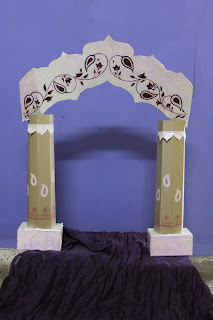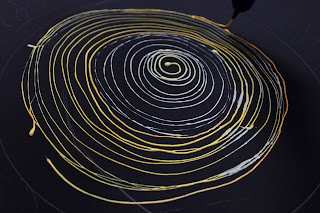Hello all,
Here's an article that was published in Bombay times (The New BOmbay segment) on page 8 on 14th September 2013. Sadly no mention about the blog which had all the decorations or the website- www.greenbappa.in was given.
We had put in a lot of hard work to give the info in the website, it would have given a surge to the number of visitors on the website. The journalist said that the newspaper policy does not permit them to give contact info. How is a not-for-profit website of a campaign fit in their criteria of not giving the contact that will help commercially? We are not a commercial site anyways. Another jolt was that the article wasnt there in the e-paper of BT in the TOI site as this was only printed in New Bombay therefore it wasnt uploaded.
I really dont know what to do about these journalists anymore. They come during the festival season, speak sweetly about giving details of your campaign. I entertain them just because more people will end up coming on the facebook page and the site/blog. After weeks of following up with them, the article gets printed when the advertisements in the page permits. I see some of the most crucial information missing. Another article was published by a journalist in Hindustan times Mulund edition, which was so badly written that I dont even want to post it here. The journalist gave my contact information in the article. Who gave her the permission to do so?
This is how these journalists work. And this cycle gets repeated all over the next year. Nothing I can do much about. Anyways, here's the article. View the photo in fullscreen so that you can read it. or download it.

Here's an article that was published in Bombay times (The New BOmbay segment) on page 8 on 14th September 2013. Sadly no mention about the blog which had all the decorations or the website- www.greenbappa.in was given.
We had put in a lot of hard work to give the info in the website, it would have given a surge to the number of visitors on the website. The journalist said that the newspaper policy does not permit them to give contact info. How is a not-for-profit website of a campaign fit in their criteria of not giving the contact that will help commercially? We are not a commercial site anyways. Another jolt was that the article wasnt there in the e-paper of BT in the TOI site as this was only printed in New Bombay therefore it wasnt uploaded.
I really dont know what to do about these journalists anymore. They come during the festival season, speak sweetly about giving details of your campaign. I entertain them just because more people will end up coming on the facebook page and the site/blog. After weeks of following up with them, the article gets printed when the advertisements in the page permits. I see some of the most crucial information missing. Another article was published by a journalist in Hindustan times Mulund edition, which was so badly written that I dont even want to post it here. The journalist gave my contact information in the article. Who gave her the permission to do so?
This is how these journalists work. And this cycle gets repeated all over the next year. Nothing I can do much about. Anyways, here's the article. View the photo in fullscreen so that you can read it. or download it.




.JPG)
.JPG)
.jpg)





















.JPG)
.JPG)






















